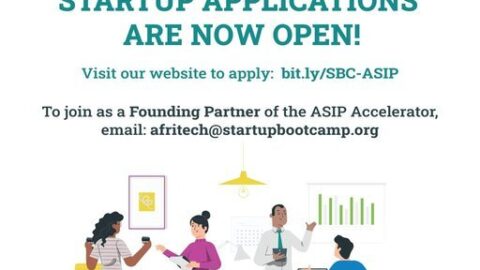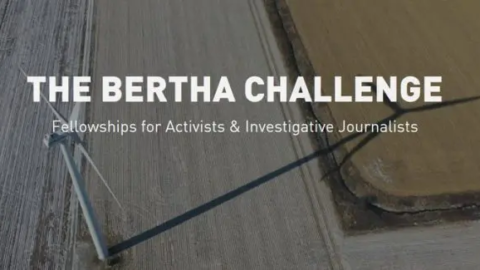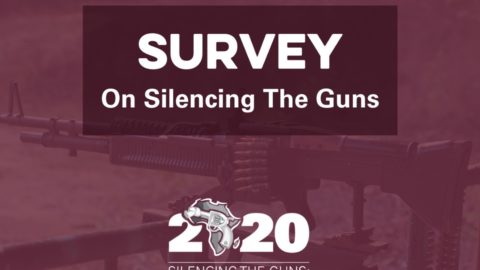It was an afternoon, I had just finished a continuous assessment exam when the news came that Gani, like we were wont to affectionately call him, was already on the campus to receive an honorary degree from and at the Obafemi Awolowo University, Ile-Ife, Osun State. The day was December 6, 2003. Done with the well deserved award ceremony, Gani Fawehinmi, ace lawyer, passionate social crusader, dedicated mouth piece of the oppressed and former presidential aspirant had given words to the Students’ Union that he would address students.
The main bowl of the University’s Sports Complex was chosen as the venue where this would go down. Expectedly, the pavilion’s foundation of the mainbowl was under a load of students that populated the venue waiting to hear from the one who had on numerous instances given the government several legal uppercuts. It was my first and only time of seeing the legal titan in flesh. Gani dug into the failure of governance and explained why as a country we had no business having a poor citizenry and why education was not a privilege but a right. Despite being an intellectual environment, nobody tweeted. Nobody updated Facebook status. No student instangrammed. Not a single person invited another to the venue using Whatsapp. It is understandable because Facebook did not come to light until a year after and twitter did not ‘happen’ until about three years after.
The name Gani means activism, it means distaste for oppression. Any child who was vocal and fearless was always dashed the soubriquet – Gani. Now that Gani’s name has been thrown up in Nigeria’s public space side by side the issue of social media deployment for social justice, it is perhaps important to imagine how Gani would have deployed the Jack Dorsey invention for use and the Mark Zukerberg brainchild for voicing of his opinion.
Gani’s chamber was one of the first digital chambers in the country. Gani was an early adopter and a pacesetter. Concord Newspaper, now defunct, had done an extensive feature several on how the late chief’s office had a number of decent IBM computers several years before desktop computers became the norm in the country. His 46 years old chambers which was shut in January, 2011 was one of the most digital compliant legal firms in the country. It was reportedly the largest law chamber in the country with about 290,000 law related books. The chamber was a factory of sort producing several other legal luminaries that now inhabit Nigeria’s legal firmament. His chamber’s production of the Nigerian Law Weekly Reports which he founded and edited may have been helped by this digital embrace.
No legal titan in Nigeria arguably patronised and was loved by the press like Gani. Cover stories were run from interviews with him. Opinions were written about his thought on national issues. Editorials were offered on several instances on why he should be set free on several occasions when he was arrested. Tell Magazine unprecedently ran a cover on him three times. It is not in contest that Gani Fawehinmi would have had one of the largest followership on twitter if he was alive today. The occupy Nigeria protest would also have been another outlet for him to vent his spleen on anti-people governance. Even in death, Nigerians gravitated towards him and little wonder it was the Gani Fawehinmi Garden with his statue that Lagosians rallied to as meeting point for the #OccupyNigeria protest. Gani’s protests and legal backings kept several student activists in school. The Senior Advocate of the Masses protests and that of others was part of what forced Gen. Babangida to step aside. It also forced opening of the political space for more parties.
Twitter, according to Jack Dorsey – one of the co-founders of twitter, is that short burst of inconsequential information. In 140 characters, Gani would have made his trademark scathing remarks on national issues. He would have upbraided the government during the fuel subsidy issue. He would have told us his view about the renaming of the University of Lagos. On twitter, Gani would have told us his opinion about the amnesty that was recently offered to the Boko Haram sect by the Federal Government. On twitter, Gani would have offered priceless thoughts on the now embarrassing election by the Nigeria Governors Forum. Gani would undoubtedly have become owner of his own content – reaching the people in a timely and coherent manner. The Gani we know however would have ensured a convergence of the new media and the traditional media even as his views would continue to unsettle any mindless policy.
Even in death, Gani’s name is revered. Currently there are about 13 pages and groups laying claim to the name on Facebook. A page where he is described as the peoples’ Field Marshall and with news items and post that don’t sound Gani-like stands outs with 4,508 likes. The page was registered September 8, 2009; 3 days after Gani’s demise. Alive, Gani’s page would have been a must for journalists covering the law beat before going to press. There is no noticeable twitter handle in his name.
Winner of several local and international awards including his highly esteemed membership on the Ghandi Foundation in 1971. His non-violent rallies earned him prison terms on irregular occasions. From Panti Police Station to CID Alagbon up to Gombe Prison, Gani saw the colour of their inner walls. Named man of the year several times by Nigerian newspapers, including the Punch Newspaper in 1997, Gani rejected the Order of the Federal Republic Award in 2008.
Lawyers, especially those with activism tilts may need to do more using this social media tools and drive policy issues in this country with frenzy in the way Gani possibly would have. It is not about enlisting alone but also about regular use of these platforms. Olisa Agbakoba seems to have a decent social media live with even a blog to complement. Femi Falana also has a Facebook presence. None of the about 7 handles on twitter bears his signature. Bamidele Aturu, one of Gani’s protégés has a decent following on Facebook as well but with 726 followers on twitter where on 31st December 2012 he had tweeted that – ‘we just sent a request on behalf of a client to CBN GOVERNOR under the FOI Act to state his salaries, allowances, no of cooks, drivers.’ Shehu Sani’s use of Facebook for socio-political commentary however blazes the trail, always offering passionate thoughts on contemporary national issues.
But for the cancer which took Gani’s life on September 5 2009, Gani most definitely would by now have taken the Federal Government to court on its contract plans with Elbits System to spy on Nigerians communications. It is two days to June 12. Was Gani alive, he would have offered those with feeble memory a treatise on the fairness and freeness of the June 12 presidential election using newspaper interviews, rallies, status updates and tweets.
_____________
Sola Fagorusi is a youth development advocate, freelance writer, accomplished debater cum coach. The Obafemi Awolowo University graduate has about 10 years experience in social entrepreneurship which straddles leadership, good governance cum anti-corruption and adolescent reproductive health. The Leap Africa alumnus is also a trained peer educator, a DESPLAY alumnus and co-facilitator. For 2 years now, he has been a technical consultant and lead judge on the Intra-Faith Peace Youth TV Debate Project facilitated by Youngstars Foundation and the British High Commission. To read his full profile, click here






